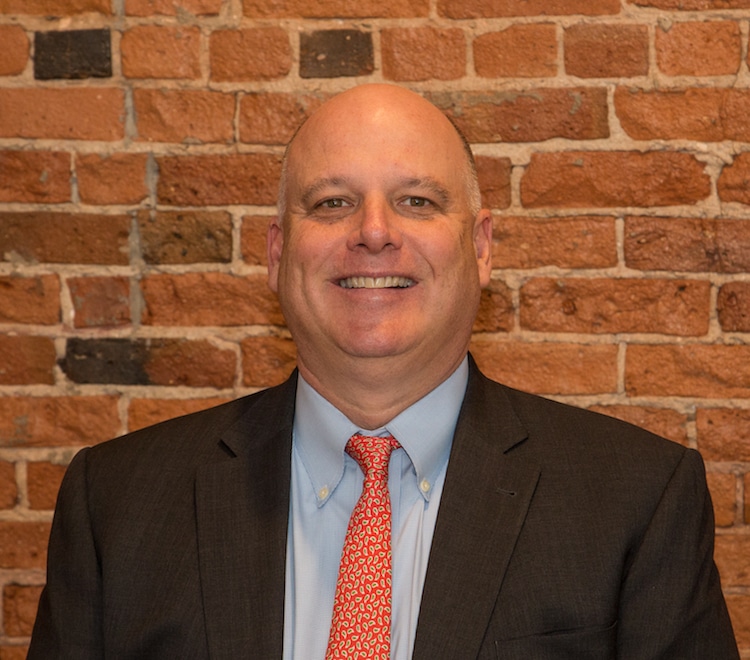
Embarking on a medical career creates many financial challenges and opportunities. Successfully managing student debt and navigating many unique career complexities— like balancing time for fellowships, contemplating a private practice, and understanding their financial impacts—are crucial for physicians. Physicians require specific financial guidance to ensure their fiscal health in the short and long term.
As a financial advisor who has worked with many different types of physicians at various stages of their careers, I’ve noted important considerations physicians need to take when looking for a financial advisor. In this article, we’ll address the top 6 questions every physician should ask before selecting their financial advisor – a decision that profoundly influences a physician’s financial future.
“The average medical school graduate owes more than six times as much as the average college graduate.”
– Education Data Initiative
How is financial planning for physicians different?
Although many think physicians experience financial security, that’s not necessarily true. From high educational debt loads, costly professional expenses, lawsuits, and abbreviated careers, physicians’ financial security can become highly volatile and, in some cases, even more volatile than a professional athlete’s career. As a result, it’s important for doctors to seek out financial advisors who hold specific qualifications, experience, and expertise to ensure that the physician’s financial challenges are met, and their goals are achieved.
6 Questions to Ask When Looking for a Financial Advisor
1. What is your experience working with physicians and others in the medical field?
According to the National Library of Medicine, physicians graduate with strong credentials in their field but often lack the financial literacy necessary to achieve long-term success in their personal finances.
To navigate the unique challenges and financial risks in their profession, doctors need a knowledgeable advisor. One who’s worked with and understands a physician’s accumulated debt, delayed earning potential, regulatory and insurance concerns, and liability issues, and recognizes the importance of protecting their assets.
An adept financial advisor can also simplify complex financial concepts to provide support, education, and reassurance during career transitions, tax planning, investment strategies, and establishing professional networks for comprehensive support. Personalized financial advice is essential for doctors to manage their money efficiently.
2. How do you charge your clients?
Physicians should consider fee-only fiduciaries when seeking a financial advisor for a few important reasons:
- Winthrop Partners operates under the SEC’s Fiduciary Mandate, meaning they are legally obligated to prioritize their client’s best interests above their own self-interests. This ensures that the advice and recommendations are solely aimed at benefiting the client rather than being influenced by commissions or sales incentives.
- Fiduciaries who also elect to be Fee-only advisors add an additional level of trust and transparency since they charge a single flat fee. The Fiduciary always negotiates solely for the client’s benefit, eliminating potential conflicts of interest that may arise with commission-based compensation, where advisors earn a percentage of the financial products they recommend. The transparency of a fee-only model helps build trust between the advisor and the physician, fostering a relationship focused on the client’s financial well-being.
By choosing a fee-only fiduciary, physicians can have confidence that the financial advice they receive is objective, tailored to their specific needs, and aligned with their long-term financial goals, creating a more secure and trustworthy financial planning relationship.
3. Do you understand the ever-evolving physician-specific challenges?
The medical profession has many intricacies beginning with educational debt, the lure of special loan programs provided by banks, the location of practice, whether to start one’s own practice, buy into an existing practice, or take an employment contract with a hospital network. Then once the choice is made, most physicians rely on financial professionals to negotiate and update these contracts to remain in step with the constantly evolving medical community.
Physicians should seek advisors who demonstrate a commitment to staying informed about changes in tax laws, investment strategies, and financial planning best practices.
4. What is your investment philosophy, and how do you tailor it to the specific needs and risk tolerance of physicians?
Physicians have unique and complex financial profiles to consider– investment strategies, debt management, tax planning, insurance needs, and retirement planning needs– all of which need to be tailored to their unique career trajectory. For instance, many types of surgeons may earn a substantial amount more than other physicians, but their careers may be considerably shorter than their peers. As a result, this factor can result in different risk appetites among physicians.
With that said a physician should inquire about a financial advisor’s investment philosophy because it provides insight into how the advisor approaches managing investments, making decisions, and handling risk. Understanding the advisor’s philosophy helps physicians assess whether it aligns with their own financial goals, risk tolerance, and preferences.
5. How often will you review and update my financial plan?
The demanding nature of a physician’s career often complicates their management of ever-changing finances, despite their substantial income. They grapple with the challenges of student loans, practice expansion, and retirement planning. Because their income fluctuates and tax rules change, physicians need a flexible financial strategy that adapts to their ever-evolving goals.
Regular reviews play a vital role in the long-term financial health of physicians. Reviews allow these professionals to revisit their current situation, update their financial plans, incorporate new goals, and respond to economic changes or life events. Advisors conducting these periodic assessments help doctors stay financially on track by adjusting investments, optimizing tax plans, and managing risks for a more secure and stable financial future.
6. Can you provide references from other physicians or healthcare professionals you have worked with?
Physicians should look for financial advisors with a robust reputation coupled with favorable references from fellow physicians and professionals in the medical field. Having these connections should significantly influence their decision-making process.
Physicians should gain reassurance and confidence in knowing that their advisor has effectively guided others through similar situations. Having specialized experience not only gains trust and credibility but also highlights the advisor’s proficiency in addressing the unique financial needs of healthcare professionals. If you’re unsure of whether you’re getting a qualified advisor with an experienced healthcare background, ask about their valuable network of contacts and industry-specific resources.
In conclusion
The medical profession’s financial landscape is distinctive, and an experienced financial advisor brings the knowledge, insights, and tailored solutions necessary to navigate these complexities successfully. Having an advisor with experience increases the likelihood of making informed financial decisions that align with a physician’s goals and aspirations.
At Winthrop Partners, our mission is to empower medical professionals to make informed choices and build a strong financial foundation that can lead to a successful and personalized financial advisory relationship. As trusted advisors, we look out for the well-being of our clients and build a portfolio that aligns with their personal goals. As a fee-only fiduciary, we take pride in helping you work through your options and assist in managing your choices. If you are a physician looking for a financial advisor to help with retirement planning, investment management, or tax planning, we’re here to help you create a long term plan that works in your best interest.
Learn more about how Winthrop Partners can help you manage your retirement plan and diversify your portfolio, contact us today for your free consultation.
Disclosures:
The views, opinions, and content presented are for informational purposes only. They are not intended to reflect a current or past recommendation; investment, legal, tax, or accounting advice of any kind; or a solicitation of an offer to buy or sell any securities or investment services. Nothing presented should be considered to be an offer to provide any product or service in any jurisdiction that would be unlawful under the securities laws of that jurisdiction. All investments involve risk, including the possible loss of some or all of the principal amount invested. Past performance of a security or financial product does not guarantee future results. Investors should consider their investment objectives, risks, and risk tolerances carefully before investing. The Firm has made every attempt to ensure the accuracy and reliability of the information provided, but it cannot be guaranteed.

Thomas Saunders is the Managing Partner of Winthrop Partners. Prior to founding Winthrop Partners, Tom was Senior Vice President at what is now JP Morgan. His career includes senior and executive roles at Brown Brothers Harriman and First Niagara Bank, a top 25 Bank. Click here to contact Thomas Saunders about your investment and planning requirements.
